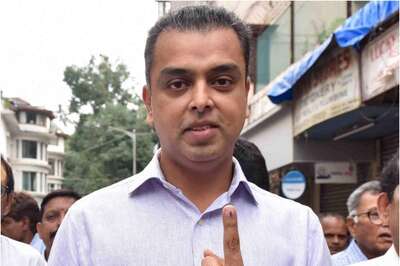
views
Pushkar: After a year of tourist-trouble, the state administration has laid down a set of rules for tourists visiting the holy town of Pushkar.
A visitor at Pushkar, Prithviraj Sankhla says, "The message that the government wishes to convey is clear and loud ?you come here, enjoy yourself and respect the religious sanctity of this place. Te idea is to keep it clean and environment friendly."
But with instructions as strict as not calling your spouse by the name, to drinking sanctified water by which the feet of the holy men have been washed, the tourists say they would rather do without the moral lessons.
Brian, a tourist admits that the set of rules that the administration has laid down will definitely keep me from going to Pushkar.
Even as the tourists rail against 'fleecing' at the ghats, the rulebook stipulates the tourists to pay a fee to the priests after the prayers. Tourists say most of the times they are forced into paying the priests.
PAGE_BREAK
Sheneath Candelyn, a tourist says, "Many of the tourists who visit Pushkar are not accustomed to the rigid religious rules that the rulebook has laid down. So, if the administration wants us to pray, to be holy people or even as holy as people are here, then they should also understand that its not necessarily the part of where we come from."
The moral guide has now sparked off a debate on whether everything that has been put together as a part of Asian culture, makes sense at all.
Some old-timers in Pushkar, like Birbal, a resident believe that the guide is , "Are Indians not holding hands and walking in the markets? If a tourist takes pictures there are objections, but if an Indian does its okay. This is unfair."
While most people agree that it?s important to guard the sanctity of Pushkar, just where that ends and moral-policing takes over is turning into a matter of debate.
















Comments
0 comment